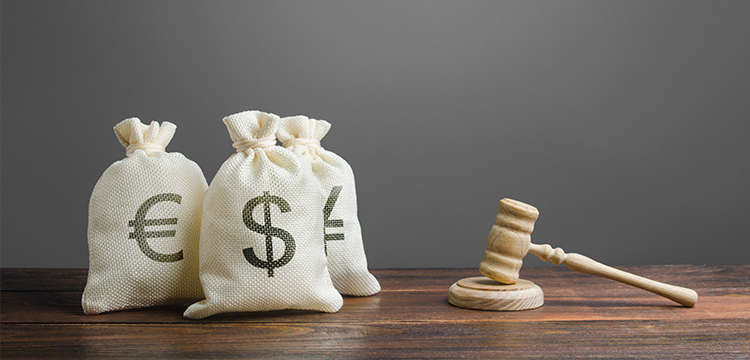The government's updates to its anti-money laundering regime came into force in January 2020. The Money Laundering and Terrorist Financing (Amendment) Regulations 2019 – yes, it's a bit of a mouthful – sets out some significant amendments to the 2017 version. And, as a finance professional, you must make sure you comply with the new rules.
Are you aware of the revised guidance that you need to follow? The key changes fall under seven headings:
Electronic verification
The first change is that practices must use electronic verification for anti-money laundering checks "wherever possible", as well as looking at paper documents such as passports and driving licences.
It's therefore a good idea for accounting firms to implement accurate electronic identification processes, to ensure they remain compliant.
Client due diligence
Next up, when assessing the need for enhanced due diligence measures before engaging with a prospective client, you must now consider an additional number of high-risk factors, such as whether:
- There are relevant transactions between parties in high-risk third countries
- There are transactions related to oil, arms, precious metals, tobacco produces, cultural artefacts, ivory, etc.
- The client is the beneficiary of a life insurance policy
If any of these factors are present, your firm may need to seek additional information from, or monitor, the client before working with them.
Due diligence exceptions
In more due diligence news, the government has revised regulation 38 on electronic money, setting out certain situations where firms can forego client due diligence measures. For example, where:
- The maximum amount that can be stored electronically is €150
- Anonymous electronic money cannot be used to fund the relevant payment instrument
Less due diligence? That makes a nice change.
Safe-deposit boxes
The rules around safe-deposit boxes have been tightened, though. Under the new regulations, credit institutions and providers of safe custody services must respond to requests for information from the Gambling Commission or a law enforcement authority about accounts and safe-deposit boxes, through a central automated system. Information that may be requested includes the name, date of birth and address of the holder(s) or beneficial owner(s).
Beneficial ownership
Now this is a big one. The 2019 regulations require firms to update their records relating to the beneficial ownership of their corporate clients. Practices must also make sure they understand the ownership and control structure of their corporate clients. And one more thing…you need to record any difficulties encountered in identifying beneficial ownership.
Companies House
Another point on beneficial ownership under the revised regulations… If there is a discrepancy between the beneficial ownership information a firm holds on its clients and the information held on the registers of Companies House, the organisation must report these to the OPBAS (Office for Professional Body Anti-Money Laundering Supervision).
Cryptoasset businesses
Finally, the 2019 regulations have expanded the regulated sector to include cryptoassets dealers. As of January 2020, UK businesses carrying out cryptoasset activities must comply with the UK's money laundering regulations, due to their risk of facilitating money laundering or terrorist financing. Such organisations must also register with the Financial Conduct Authority (FCA), which has taken on the role of anti-money laundering and counter terrorist financing (AML/CTF) supervisor of UK cryptoasset businesses.
There you have it. The government's changes to its money laundering regulations mean that you may need to enhance your client due diligence checks, implement accurate electronic identification verification processes, and update your records on the beneficial ownership of your clients. So make sure you keep on top of these requirements and do your bit to prevent money laundering!

You need to sign in or register before you can add a contribution.